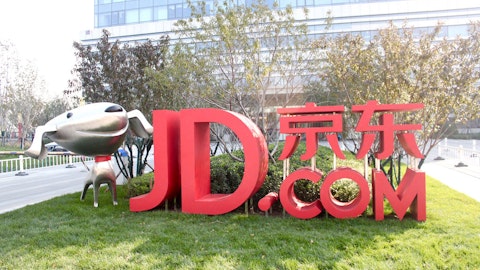The biotech industry is regaining ground it lost in 2016 at full speed. The sector was very hot until around mid-2015, with the iShares Nasdaq Biotechnology ETF (NASDAQ:IBB) gaining over 370% between 2008 and 2015. This prompted many analysts and investors at the time to talk about a biotech bubble. Between July 2015 and July 2016, the IBB lost around 26%, but since July 2016, it has been climbing and has gained 27%. On a macro level there are a couple of factors that contributed to growth among biotech stocks. First, there’s the tax reform, which benefited large biotech companies, allowing them to repatriate cash stashed overseas. In addition, the government is sending some positive signals to the industry by intending to reduce red tape, eliminate some oversight and cut bureaucracy. Individual biotech stocks are soaring as they disclose positive trial results and announcing new breakthroughs.
Despite the recent gain, the IBB is still trading below its 2015 highs, so biotech remains a very hot industry to invest in. Since the beginning of the year, a number of biotech-focused funds reaped huge returns. In our database that includes over 600 investors, four of the top six best-performing hedge funds are focused on biotech. For example, Peter Kolchinsky’s RA Capital Management’s stock picks were up by 31% in the first quarter, while the picks of James A. Silverman’s Opaleye Management returned 23% in the first three months of the year and gained 91% in the 12-month period ended March 31.
So, if you are looking to invest in the biotech industry, you can play the safest card and buy shares of a biotech ETF. Investing in individual stocks is more risky, but if you do your research carefully, there’s a good chance that you will see very solid returns in a short- to medium-run. Since many biotech companies don’t have any revenue or profits, a traditional financial approach won’t work when it comes to biotech investing. Instead there is other stuff to focus on, such as the stages in which the products are. For example, if a company is already conducting late-stage trials on humans, its stock will be very volatile and susceptible to big spikes or drops depending on the results of trials. You should also take into account how much cash a company has on hands and whether it will be able to support its operations until it has a marketable drug.

Copyright: copacool / 123RF Stock Photo
Even if you do study and try to understand the terminology and everything else there is to know about biotech, going through each individual company can be a tedious process. A much simpler way to identify good biotech stocks to invest in is to follow biotech-focused hedge funds. One fund that has been great at picking biotech stocks, lately, is Bihua Chen‘s Cormorant Asset Management.
We follow Cormorant Asset Management as part of our flagship strategy, which has returned over 90% since its inception in 2014, beating the S&P 500 ETF (SPY) by over 35 percentage points. As part of our strategy, we calculate the weighted average return of a fund’s long positions in companies with a market cap above $1.0 billion. Cormorant Asset Management was the second best-performing hedge fund in our database in the first quarter, with a gain of almost 28%. Moreover, in the 12-month period ended March 31, Cormorant’s returns amount to over 44%.
Cormorant’s first-quarter performance is mainly due to one company: Nektar Therapeutics (NASDAQ:NKTR). Cormorant added the stock to its equity portfolio during the last quarter of 2017 and during the first three months of 2018 it raised the position by 28% to 2.56 million shares worth $272.37 million. In addition, Bihua Chen’s fund more than doubled its stake in ‘Call’ options underlying Nektar Therapeutics (NASDAQ:NKTR) shares and at the end of March it held options underlying more than 1.53 million shares.
Follow Nektar Therapeutics (NASDAQ:NKTR)
Follow Nektar Therapeutics (NASDAQ:NKTR)
Receive real-time insider trading and news alerts
Nektar Therapeutics (NASDAQ:NKTR)’s stock surged by over 84% in the first quarter, being the main driver of Cormorant’s returns, since its long position amasses almost 20% of the equity portfolio. However, in June, the stock took a big hit and is currently in the red year-to-date. This decline might actually make Nektar Therapeutics (NASDAQ:NKTR) an attractive stock to buy and on the next page we are going to delve deeper into the reasons behind the stock’s recent performance and see why it might be undervalued. In addition, we are going to take a look at a couple of other biotech investment ideas from Cormorant’s equity portfolio.
At the beginning of June, Nektar Therapeutics (NASDAQ:NKTR) disclosed preliminary data from its Phase 1/2 study that assessed the combination of its NKTR-124 and Bristol-Myers Squibb Co (NYSE:BMY)’s Opdivo in a range of cancers, including first-line melanoma, first-line renal cell carcinoma and first-line urothelial cancer. Investors were disappointed to see that the response rate in melanoma and kidney cancer patients declined since the Stage 1 of the trial in November. If in November, the overall response rate was 11 out of 13 patients, in May it declined to 14, and a similar trend was noticed among kidney cancer patients. Nektar Therapeutics (NASDAQ:NKTR) plans to launch a Phase 3 study in first-line-melanoma this quarter and is working on designing pivotal trials in first-line renal cell carcinoma and first-line urothelial cancer.
Following the news, two analysts, William Blair and JPMorgan Chase & Co., reiterated their ‘Buy’ and ‘Overweight’ ratings, respectively, although JPMorgan cut its price target to $78 from $80. HC Wainwright downgraded the stock to “Neutral’ but kept the price target intact at $54.
Aside from NKTR-124, Nektar Therapeutics has a couple of other products in its pipeline, including the NKTR-181, which is an opioid analgesic with a slow effect that doesn’t give patients the same sensation of euphoria as traditional opioids, thus minimizing the risk of abuse and addiction. At the end of May, Nektar filed the New Drug Application with the US FDA for NKTR-181. The company also seems to be financially healthy. The company earned just $38 million, but spent nearly $125 million in the first three months of 2018 and, even though, it recorded a loss of $96 million at the end of March, it still managed to finish the quarter with $334 million in cash, which excludes $1.85 billion it received from Bristol-Myers Squibb Co (NYSE:BMY) in April.
Let’s now take a look at two companies that Cormorant Asset Management added to its equity portfolio during the first three months of 2018. In SAGE Therapeutics Inc (NASDAQ:SAGE), Bihua Chen’s fund acquired a $38.60-million position that contains 239,600 shares. After jumping in December, SAGE Therapeutics Inc (NASDAQ:SAGE)’s stock has been trading mostly sideways since the beginning of the year. However, the company has recently seen a number of developments that might propel it higher. At the end of May, the US FDA accepted under Priority Review the marketing application for IV brexanolone for the treatment of postpartum depression, which is a Breakthrough Therapy indication. The FDA’s action date is December 19. In June, SAGE Therapeutics (NASDAQ:SAGE) also signed a strategic collaboration deal with Shionogi & Co., Ltd. to develop and sell SAGE-217 in Japan, Taiwan and South Korea. Shionogi will be responsible for development, regulatory filings and commercial activities related to the drug, while Sage will receive up to $575 million, including $90 million upfront and the rest in milestones and tiered royalties on net sales.
Follow Sage Therapeutics Inc. (NASDAQ:SAGE)
Follow Sage Therapeutics Inc. (NASDAQ:SAGE)
Receive real-time insider trading and news alerts
In addition, Cormorant is also betting on gene therapy, which is considered one of the biggest challenges of modern medicine, but also something that could revolutionize the entire industry. During the first quarter, the fund added 1.52 million shares of Rocket Pharmaceuticals Inc (NASDAQ:RCKT), a small-cap clinical-stage company that is developing gene therapy treatment options for rare diseases. The company currently has several ongoing studies that involve Fanconi Anemia, Leukocyte Adhesion Deficiency-I, Pyruvate Kinase Deficiency, Infantile Malignant Osteopetrosis. Over the course of this year, Rocket Pharmaceuticals Inc (NASDAQ:RCKT) expects to present updates on its studies and to file for multiple regulatory approvals across its pipeline. In addition, the company is certain that it has enough cash to support its operations and R&D activities through 2020.
Follow Rocket Pharmaceuticals Inc. (NASDAQ:RCKT)
Follow Rocket Pharmaceuticals Inc. (NASDAQ:RCKT)
Receive real-time insider trading and news alerts
Disclosure: none





